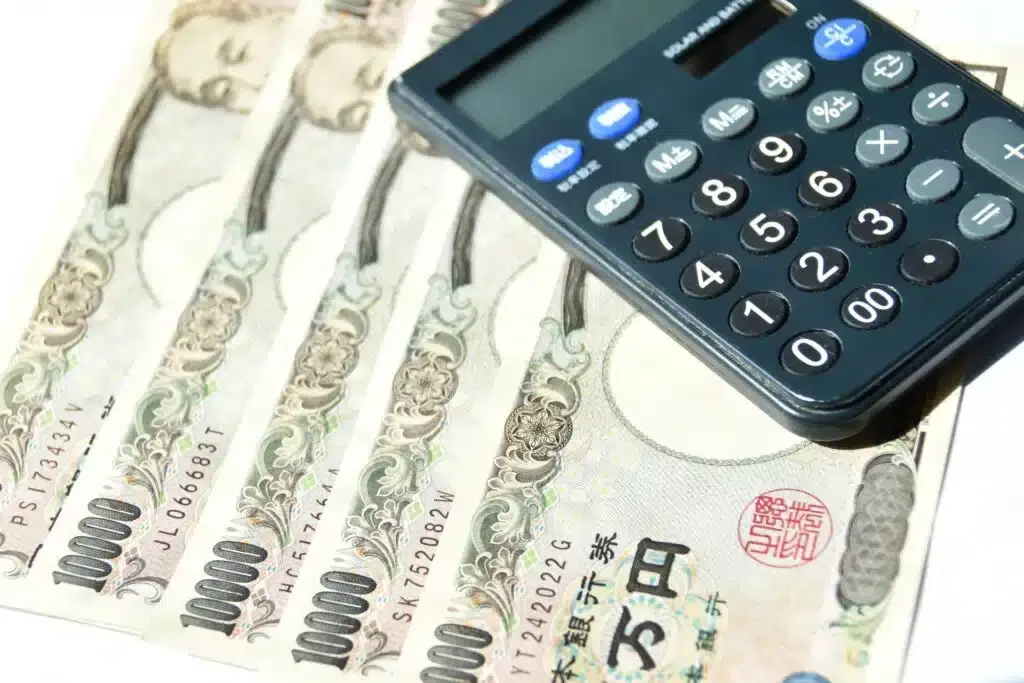Mandatory Measures to Prevent 'Kasuhara': Explaining Tokyo's Ordinance and Necessary Corporate Strategies

Customer harassment, known as “customer harassment” in Japan, where malicious claims by clients can harm the working environment for employees, is becoming a recognized issue. On March 11, Reiwa 7 (2025), a bill to strengthen measures against customer harassment was submitted, indicating a trend towards the mandatory implementation of customer harassment prevention measures for companies. It is expected that companies will be required to take more appropriate actions to address customer harassment.
However, many companies may feel uncertain about how to comply with the customer harassment prevention measures that are becoming mandatory through ordinances and laws.
In this article, we will explain the measures that companies should take in anticipation of legal amendments, along with the content of the Tokyo Metropolitan Ordinance, which was the first in the nation to establish a ban on customer harassment. Please use this information as a reference to advance your customer harassment countermeasures.
What is “Customer Harassment” and How Should Companies in Japan Address It?
“Customer harassment,” or “casuhara” in Japanese, is a type of harassment that can damage the working environment for employees. There is no clear legal definition of customer harassment under Japanese law. However, based on information from corporate surveys and other sources, the Ministry of Health, Labour and Welfare of Japan has indicated that customer harassment in the workplace can be personalityized as follows:
Claims or behaviors from customers that, considering the reasonableness of the content of such claims or behaviors, employ means or manners that are socially inappropriate to achieve their demands, thereby harming the working environment of the workers.
Ministry of Health, Labour and Welfare | Customer Harassment Countermeasures Manual
Not all complaints from customers or business partners constitute customer harassment. It is important to recognize that there are legitimate complaints that seek to improve products or services.
However, there are also malicious complaints that make excessive demands or unfairly criticize products or services. Such malicious complaints should be recognized as customer harassment, and appropriate measures must be taken to protect employees. For specific examples of customer harassment, please refer to the following article for a detailed discussion.
Related article: What Are Some Examples of Customer Harassment? Explaining Points of Countermeasures from Legal Cases
Mandatory Measures Against Customer Harassment in Japan

There is a growing movement in Japan for legal obligations requiring companies to take measures against customer harassment, known as “customer hara” or “casu-hara.” Frameworks for such measures are being developed, guided by manuals from the Ministry of Health, Labour and Welfare. However, it is important to note that the government is moving towards legislative amendments to ensure that companies can implement more effective measures.
A bill aimed at strengthening measures against customer harassment was submitted to the Japanese Diet on March 11, Reiwa 7 (2025). Should this bill be enacted, companies will be mandated to implement customer harassment prevention measures. In anticipation of this legislative change, companies must proceed with the necessary preparations.
Tokyo Implements Ordinance to Prevent Customer Harassment
To understand how measures to prevent customer harassment are regulated by law, we will explain the ordinance on the prevention of customer harassment enacted by Tokyo.
Japan’s First Ordinance to Prevent Customer Harassment
The Tokyo Metropolitan Assembly has passed the “Tokyo Metropolitan Customer Harassment Prevention Ordinance,” the first of its kind in Japan. This ordinance has been in effect since April 1 of Reiwa 7 (2025). Although there are no penal provisions for customer harassment, the ordinance’s explicit recognition of the illegality of such harassment is expected to mitigate the harm caused by it.
Previously, laws such as the Civil Code and the Penal Code could be invoked against malicious complaint behavior. However, the significance of the Tokyo Metropolitan Customer Harassment Prevention Ordinance lies in its focus specifically on customer harassment, marking the first regulation of its kind.
Reference: Tokyo Metropolitan Customer Harassment Prevention Ordinance
Prohibition of Customer Harassment Under Japanese Law
The Tokyo Metropolitan Ordinance on the Prevention of Customer Harassment (カスハラ) explicitly prohibits all forms of customer harassment. This is based on the fundamental principle that customer harassment harms the working environment of employees and can impact the business continuity of companies, and therefore, should be prevented by society as a whole.
Although the ordinance clearly states that customer harassment is illegal, it does not prescribe penalties for those who engage in such behavior. It can be said that the provision primarily aims to raise awareness among Tokyo residents about the illegality of customer harassment.
However, care must be taken not to unjustly infringe upon the rights of customers. Legitimate demands or complaints from customers should not be unfairly dismissed as customer harassment. It is crucial for both customers and employees to maintain a mindset of mutual respect and to treat each other as equals.
Responsibilities of the Metropolitan Government, Clients, Employees, and Businesses
Under the Tokyo Metropolitan Ordinance for the Prevention of Customer Harassment (Casuhara), the metropolitan government is mandated to fulfill the following responsibilities:
- Providing information on the prevention of customer harassment
- Awareness-raising and education about customer harassment
- Consultation and advice regarding customer harassment
- Collaboration with special wards and municipalities in implementing measures
- Fiscal measures to promote the implementation of policies
Clients are expected to make efforts as indicated below:
- Deepening interest and understanding of customer harassment issues
- Exercising necessary caution in behavior towards employees
- Cooperating with the metropolitan government’s customer harassment prevention measures
Employees, on their part, should strive to:
- Deepen their interest and understanding of customer harassment issues
- Engage in actions that contribute to the prevention of customer harassment
- Cooperate with the business operator’s (employer’s) efforts to prevent customer harassment
Business operators are required to make efforts as follows:
- Proactively and actively engage in the prevention of customer harassment
- Cooperate with the metropolitan government’s customer harassment prevention measures
- Ensure the safety of employees who have been subjected to customer harassment
- Take necessary and appropriate measures against customers who have engaged in harassment
- Implement necessary measures to prevent their own employees from engaging in customer harassment when acting as customers
It is clear that the prevention of customer harassment requires concerted efforts from all sectors of society.
Guidelines for the Prevention of Customer Harassment as Established by Tokyo Metropolitan Government
Under the Tokyo Metropolitan Ordinance for the Prevention of Customer Harassment, the Tokyo Metropolitan Government has outlined guidelines (a set of guidelines) aimed at preventing customer harassment. Although the ordinance does not impose penalties, the guidelines are intended to enhance the effectiveness of preventing customer harassment.
Reference: Tokyo Metropolitan Government | Guidelines for the Prevention of Customer Harassment
The contents anticipated to be included in the guidelines are as follows:
- Details regarding the nature of customer harassment
- Responsibilities of customers, employees, and business operators
- Measures implemented by the Tokyo Metropolitan Government
- Initiatives taken by business operators
Based on these guidelines, the Tokyo Metropolitan Government is set to implement the following measures to prevent customer harassment:
- Providing information related to the Tokyo Metropolitan Government’s projects and activities
- Promoting awareness and education to deepen understanding of the prevention of customer harassment
- Offering consultation and advice on labor issues and consumer life issues
- Providing consultation and advice by experts for small and medium-sized enterprises and others
Measures Required of Business Operators
Business operators must take the following measures based on the guidelines set by the Tokyo Metropolitan Government:
- Establishing a system to appropriately respond to claims
- Initiatives to consider those who have suffered from customer harassment
- Creating manuals and conducting training to prevent customer harassment
- Ensuring that their employees do not engage in customer harassment at client sites
Employees are required to make efforts to comply with the manuals created by the business operators.
For more information on the Tokyo Metropolitan Ordinance for the Prevention of Customer Harassment, please refer to the following document:
The Risks of Neglecting Customer Harassment (Casuhara) Measures
To understand the importance of implementing measures against customer harassment (casuhara), let’s discuss the risks associated with neglecting such measures.
Negative Impact on Employees
When measures against customer harassment are neglected, the working environment for employees can be severely affected. Employees who are subjected to malicious complaints from customers may experience a decline in job performance. In cases of significant mental stress, they might suffer from health issues such as sleep disturbances or mental disorders.
Companies have a duty of care to protect their employees’ working environment. To ensure that employees can work comfortably, it is essential to take measures against customer harassment.
Negative Impact on the Company
If measures against customer harassment are not taken, the company itself can suffer significant negative consequences. Being overwhelmed by malicious complaints can lead to financial losses due to returns, refunds, or claims for compensation.
Furthermore, handling complaints requires a certain amount of personnel and time, which can disrupt overall business operations.
Moreover, if complaints are ignored and bad publicity spreads, it could lead to a deterioration of the company’s brand image.
Before customer harassment issues adversely affect the entire company, it is crucial to take appropriate measures in advance.
Negative Impact on Other Customers
If customer harassment is left unaddressed, it could also negatively impact other customers. The presence of customers making malicious complaints can worsen the environment for other patrons. Diverting employee resources to handle complaints may result in a decline in service quality. If dissatisfied customers share their negative experiences, it could further damage the company’s brand image.
To enhance the service provided to customers, measures against customer harassment are necessary.
Measures Companies Should Take Against Customer Harassment in Japan

Here, we will explain the measures that companies should take in preparation for the occurrence of customer harassment (casu hara).
Clearly Establish and Communicate Basic Policies to Employees
When developing measures against customer harassment, first establish a clear basic policy and make sure to communicate its contents to your employees. By clearly presenting the basic policy, you convey the company’s stance on protecting employees. If the company’s stance is clearly communicated, it will be easier for employees to voice complaints and exchange opinions about customer harassment.
Conversely, without the reassurance that the company will protect them, employees may not feel comfortable coming forward about customer harassment.
First and foremost, it is crucial to establish a basic policy and demonstrate the company’s stance to the employees.
Set Up a Consultation System
Create an environment where employees can easily consult about issues related to customer harassment. When an employee faces customer harassment, their immediate point of contact should be their supervisor or site manager. Determine in advance who employees should consult in the event of trouble. It is also important to create a manual that outlines how the person receiving the consultation should respond.
Building a coordination system with relevant departments and external organizations (such as attorneys) can also lead to swift problem resolution.
Decide on Procedures for Handling Complaints When They Arise
To respond appropriately to customer harassment, it is necessary to have predetermined response procedures. Consider the following points while anticipating specific troubles that could occur:
- Number of people to handle the complaint
- Timing of the apology
- Flow of information sharing
- Whether to record phone calls
- Key points for understanding customer requests
The specific response procedures will vary depending on the nature of the business and the work format. Consider the potential content of customer harassment and how to respond based on your company’s services and staffing situation.
Conduct Training for Employees
To enhance the effectiveness of measures against customer harassment, it is necessary to provide training to employees. Conduct regular training to deepen employees’ understanding of customer harassment. It is desirable for all employees who interact with customers, not just full-time employees, to participate in the training as much as possible.
By ensuring that employees are well-informed about the consultation system and response procedures, the organization can achieve swift and appropriate action.
In addition to employees who deal with customers, it is also essential to educate supervisors and site managers who will receive consultations.
How to Respond to Customer Harassment (Casuhara) Incidents in Japan

Here, we will explain the methods for responding to incidents of customer harassment, known as “casuhara,” when they occur.
Proceed with Accurate Fact-Checking
If an incident of casuhara occurs, the first step is to proceed with accurate fact-checking. This is to determine whether the customer’s demands are legitimate claims or malicious complaints. Objectivity is crucial in fact-finding. Gather information broadly, including from parties not directly involved and from recorded footage.
If you determine that a customer’s complaint constitutes casuhara, the company must take actions such as:
- Asking the complainer to leave
- Banning the complainer from entering the premises
It is important to avoid making hasty judgments with ambiguous fact-checking.
Implement Considerate Measures for Employees Affected by Casuhara
If there are employees who have been victims of casuhara, it is necessary to implement considerate measures. If employees are subjected to violence, verbal abuse, or sexual harassment, their safety must be secured promptly. Depending on the situation, it may be advisable to contact a lawyer or the police.
Furthermore, as they may also be under mental strain, aftercare and stress checks are indispensable.
If there are signs of mental health issues, encourage them to consult with professionals or medical institutions.
Work on Measures to Prevent Recurrence
In the event of a casuhara incident, it is important to consider measures to prevent similar issues from recurring. Share the details of the trouble as a case study and use it to improve manuals and training.
By reviewing customer service methods, employees’ understanding of customer interactions can be deepened, potentially leading to effective prevention.
Key Points to Consider When Addressing Customer Harassment (Casuhara) Measures in Japan

This article explains the key points to consider when thinking about measures to address customer harassment, known as “casuhara,” in Japan.
Quickly Grasp the Situation When Casuhara Occurs
When considering measures against casuhara, it is crucial to establish a system that allows for the swift understanding of the situation as it occurs. Instead of just reacting to employee consultations, proactively obtaining information can lead to early detection of signs of casuhara.
For example, the following systems can be implemented:
- Real-time monitoring through systems that transcribe communication content
- Advancing early response through emails or calls before writing incident reports
- Ensuring thorough consultation with supervisors via phone
When casuhara occurs, it is vital that information is shared immediately.
Never Neglect the Recording and Management of Information
Do not neglect the recording and management of information related to casuhara responses. Record the details of complaints and the history and outcomes of responses accurately in reports and logs. It is essential that correct information is shared and reported to the relevant departments. This makes it easier to utilize the information for the consideration of measures to prevent recurrence.
Review the Content of Measures Taken
To enhance the effectiveness of casuhara prevention measures, it is necessary to review the content of the measures as needed. The nature of complaints can change due to shifts in social conditions, customer needs, and changes in service formats.
It is important to regularly update the analysis of cases and the consideration of response methods.
Summary: Consult a Lawyer for Corporate Measures Against Customer Harassment in Japan
There is a trend towards the legal obligation for companies to implement measures to prevent customer harassment, known as “customer harassment” or “casu hara” in Japan. Tokyo has taken the lead by enacting the nation’s first ordinance that uniformly prohibits customer harassment.
In anticipation of customer harassment measures becoming mandatory, companies need to consider appropriate responses to protect their employees’ working environment. If you are uncertain about handling customer harassment measures on your own, we recommend consulting with a lawyer.
By consulting with a lawyer in advance, you can ensure support in responding to any customer harassment issues that may arise.
Guidance on Measures by Our Firm
Monolith Law Office is a law firm with high expertise in both IT, particularly the internet, and legal matters. Our firm provides a wide range of legal support to clients ranging from Tokyo Stock Exchange-listed companies to venture businesses, including the drafting and reviewing of contracts. For more details, please refer to the article below.
Areas of Practice at Monolith Law Office: Corporate Legal Affairs for IT & Startups
Category: General Corporate
Tag: General CorporateIPO





















